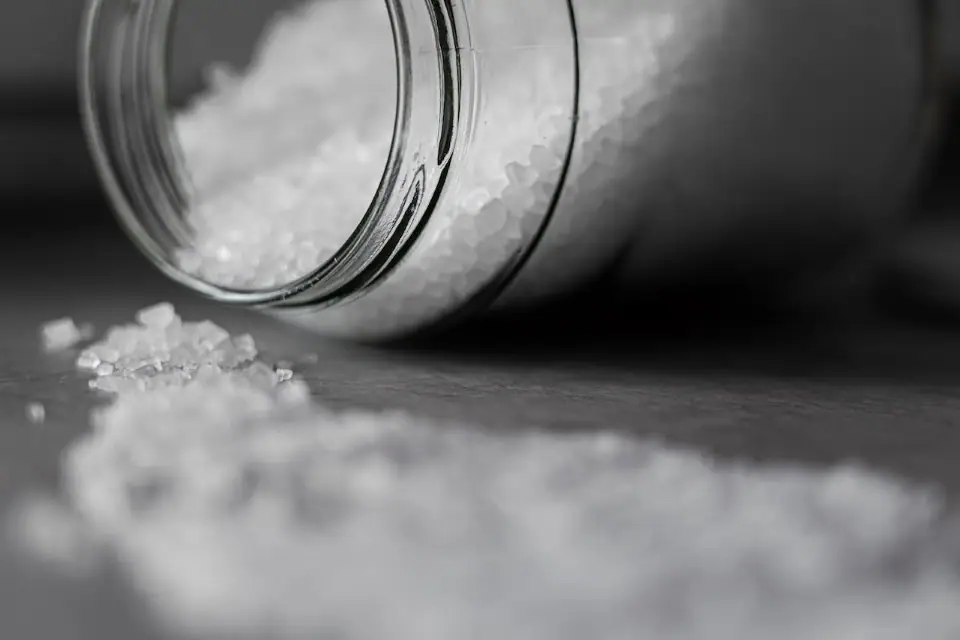In recent times, the culinary world has been hit by an unexpected challenge – a shortage of kosher salt. This essential ingredient, known for its larger, coarser grains and absence of additives, has become a staple in kitchens worldwide. However, a growing concern has emerged as the availability of kosher salt has dwindled, leaving both professional chefs and home cooks searching for alternatives. In this article, we delve into the reasons behind the kosher salt shortage, its impact on the culinary landscape, and potential solutions.
The Rise of Kosher Salt in Culinary Culture
A Brief Overview
Kosher salt gained popularity due to its unique texture and ability to enhance the flavors of dishes. Its coarse grains make it ideal for seasoning, and the absence of iodine and anti-caking agents allows for a purer taste. From brining to rimming cocktail glasses, kosher salt has become a kitchen essential.
Unraveling the Causes Behind the Shortage
Supply Chain Disruptions
The kosher salt shortage can be attributed in part to disruptions in the global supply chain. Factors such as transportation challenges, labor shortages, and unexpected events like natural disasters have led to a decrease in production and distribution.
Increased Demand
As the culinary world experiences a surge in at-home cooking and gourmet dining, the demand for kosher salt has skyrocketed. This unexpected spike has strained the available supply, leaving many consumers facing empty grocery store shelves.
Production Challenges
The production of kosher salt involves a meticulous process that includes evaporating seawater or brine to obtain the desired salt crystals. Any disruption in this delicate process can lead to reduced output, contributing to the shortage.
FAQs About the Kosher Salt Shortage
1. Why is Kosher Salt Unique?
Kosher salt is distinct due to its larger, irregularly shaped grains. This feature makes it an excellent choice for certain culinary applications, such as curing meats and seasoning dishes.
2. Can I Substitute Kosher Salt with Table Salt?
While you can substitute table salt for kosher salt in a pinch, be mindful of the quantity. Table salt is denser, so you’ll need less of it. Adjust the measurements accordingly to avoid over-salting your dishes.
3. Are There Regional Variations in the Kosher Salt Shortage?
Yes, the impact of the kosher salt shortage varies by region. Some areas may experience more severe shortages due to local factors affecting the supply chain and demand.
4. How Can I Cope with the Shortage in My Kitchen?
Consider exploring alternative salts, such as sea salt or Himalayan salt, which can provide similar texture and flavor profiles. Additionally, check with local suppliers or specialty stores, as they may still have limited stocks of kosher salt.
5. Is the Kosher Salt Shortage Temporary?
The duration of the kosher salt shortage is uncertain and depends on various factors affecting production and distribution. Monitoring updates from salt producers and staying informed about global supply chain improvements can offer insights into the situation’s progression.
Navigating the Culinary Landscape Amidst the Crisis
As the kosher salt shortage continues to impact kitchens worldwide, chefs and home cooks alike are adapting to the situation. Exploring alternative salts and staying informed about local supply updates are crucial steps in mitigating the effects of the shortage. While the exact timeline for resolution remains uncertain, the culinary community remains resilient, demonstrating creativity and flexibility in the face of this unexpected challenge.
In conclusion, the kosher salt shortage serves as a reminder of the intricate web that supports our global culinary experiences. From the production processes to the supply chains and consumer demands, each element plays a vital role. As we navigate these challenges, the culinary world remains united in its commitment to innovation and adaptation, ensuring that kitchens worldwide continue to thrive despite the fluctuations in ingredient availability.

